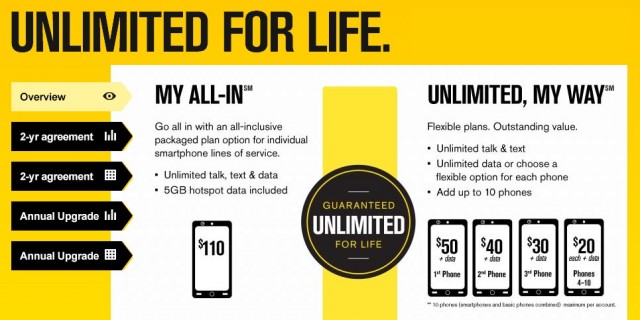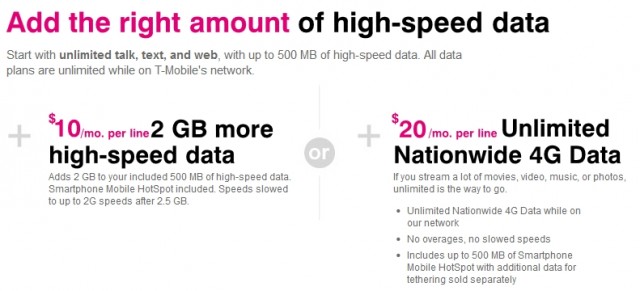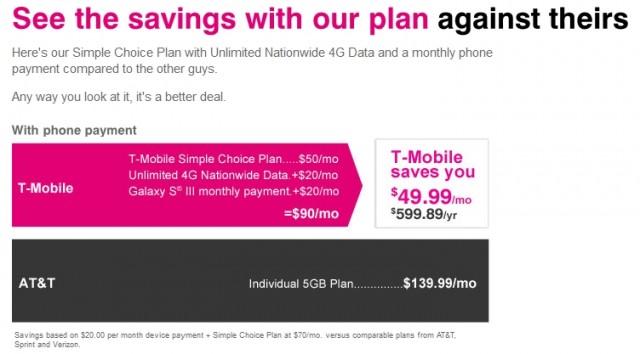 A website glitch by Verizon Wireless last weekend let customers with legacy unlimited data plans to upgrade to a new subsidized smartphone on a two-year contract and keep unlimited data.
A website glitch by Verizon Wireless last weekend let customers with legacy unlimited data plans to upgrade to a new subsidized smartphone on a two-year contract and keep unlimited data.
This afternoon, Verizon Wireless representatives confirmed they will honor upgrades from customers that took advantage of the mistake, despite the fact Verizon’s CEO has gone out of his way to declare unlimited data service “unsustainable.”
Over the past weekend, there was a software issue involving some orders for customers seeking to upgrade their devices. A number of customers who were upgrading devices were able to maintain an unlimited monthly data feature while paying a subsidized price. Verizon Wireless will honor those orders that were approved this past weekend, allowing those customers to retain their unlimited plans for the duration of their contract and receive their new device. Verizon Wireless corrected this software issue today. The company no longer offers unlimited data plans and customers who want to retain existing unlimited data plans, must pay full retail price for a replacement phone.
 Verizon Wireless discontinued offering unlimited use data plans, but has allowed customers still on those plans to keep them indefinitely. Last year, Verizon Wireless amended its policy for grandfathered unlimited customers denying them access to subsidized, discounted devices unless they switched to a usage-based plan. A website error allowed unlimited customers to bypass a usual restriction requiring them to abandon their unlimited plan to complete the upgrade order. Dozens of customers reported this morning they had received their new phones with unlimited data still intact. With the glitch fixed, customers attempting to upgrade will once again need to give up unlimited data in return for a device discount.
Verizon Wireless discontinued offering unlimited use data plans, but has allowed customers still on those plans to keep them indefinitely. Last year, Verizon Wireless amended its policy for grandfathered unlimited customers denying them access to subsidized, discounted devices unless they switched to a usage-based plan. A website error allowed unlimited customers to bypass a usual restriction requiring them to abandon their unlimited plan to complete the upgrade order. Dozens of customers reported this morning they had received their new phones with unlimited data still intact. With the glitch fixed, customers attempting to upgrade will once again need to give up unlimited data in return for a device discount.
Verizon Wireless CEO Lowell McAdam said last week offering unlimited data service was “unsustainable” as a matter of physics. McAdam said carriers still offering unlimited data will be overwhelmed by excessive customer use, running wireless networks “out of gas.”
Sprint countered it has plenty of “runway” to continue selling unlimited data service, and even offers a “lifetime guarantee” of unlimited service on its wireless network.
 At least one Wall Street analyst agreed with Sprint.
At least one Wall Street analyst agreed with Sprint.
“This Verizon comment simply makes no sense. When two different people look at the same thing you often get two completely different perspectives. That’s what is happening here. It does not mean either is right or wrong, just different,” said tech analyst Jeff Kagan. “Unlimited wireless data may not make sense for Verizon Wireless for a variety of reasons. Perhaps they want to have some control over how much wireless data is being used. Perhaps they want to increase their profitability. Whatever the reason, this is Verizon’s belief and they are not wrong, for Verizon. Sprint is a different story.”
Sprint’s chief financial officer Joe Euteneuer, speaking at a Goldman Sachs conference in New York on Thursday, said Sprint’s acquisition of 2.5GHz radio spectrum from Clearwire will give it a capacity edge once its 4G network build-out is done in mid-2014.
“We feel very good about our positioning having that spectrum . .. and our portfolio spectrum vs. the competition,” Euteneuer said. “So we’ll get leverage there.”
“Sprint’s unlimited plans are the right idea at the right time,” added Kagan. “They have plenty of capacity on the network. Sprint in fact has much more spectrum than Verizon. Sprint needs to hang on to their existing customer base and attract new users. If Sprint charged the same as Verizon or AT&T they would lose. So Sprint needs to attract attention. That’s what always happens in a market. The leaders and the followers take different marketing and positioning angles. And that’s exactly what is happening here.”


 Subscribe
Subscribe
 Ergen’s vision would include a bundled package of satellite television, broadband wireless Internet and cellular telephone service. Providing suitable wireless broadband Internet in rural areas may be the biggest challenge because of Sprint’s more limited network coverage, but a marketing deal combining satellite television from Dish and Sprint cell phone service would be easier to carry out.
Ergen’s vision would include a bundled package of satellite television, broadband wireless Internet and cellular telephone service. Providing suitable wireless broadband Internet in rural areas may be the biggest challenge because of Sprint’s more limited network coverage, but a marketing deal combining satellite television from Dish and Sprint cell phone service would be easier to carry out.





